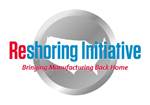Taking That First Step
They say the first step is always the hardest, but you have to take it to change the direction you are headed.
That’s exactly the challenge that presented itself to our industry this past spring. MoldMaking Technology joined more than a dozen organizations in submitting a proposal to the Walmart/U.S. Council of Mayors U.S. Manufacturing Innovation Fund that outlined ways to reduce mold costs and bring mold work back home from lower-cost countries. Click HERE for a reshoring success story.
The Reshoring Initiative took that first step, leading Gardner Business Media/MMT, SPI, AMBA and 12 other organizations with the following proposal focused on making U.S.-made molds a true competitive advantage for the U.S.:
“Achieve a $100 million/year reduction in Walmart’s indirect-spend injection mold tooling through an integrated project that reduces the cost and delivery time of U.S. molds and helps the buyer find the best-fit, lowest total cost mold for its application.”
According to Harry Moser, founder of the Reshoring Initiative, this project would entail surveying stakeholders to identify best practices and necessary changes; improve mold standards accuracy; establish the true value of a mold’s initial cost, lifetime cost and delivery; develop technologies/processes to make necessary cost and delivery changes; and create an online system to connect buyers and sellers. The findings then would be distributed to moldmakers and their customers to assure broad usage and better visibility for moldmaking, enhancing the recruitment of future moldmakers.
The proposal was not selected, but that is no reason to stop the effort. Harry is now moving forward with the next step, which does not require funding, only industry (your) assistance: customizing the Total Cost of Ownership (TCO) Estimator (reshorenow.org/TCO_Estimator.cfm) to include factors unique to molds. We’ll call it the Total Cost of Molds Estimator. It will be designed to help mold buyers and sellers quantify the costs and risks associated with a mold’s life, accuracy, cycle time, scrap rate, repair cost and delivery—all factors routinely ignored by buyers focused on lower offshore pricing.
Harry offers a simple way you can help customize the TCO Estimator: share data such as a list of “factors” unique to moldmaking, especially those more often at risk with offshore molds. These may include, but are not limited to, delivery times, rework upon receipt, mold component CAM files received, mold maintenance, part accuracy, cycle time and mold life. Then for each factor provide estimates on the differences between low-cost-country and U.S. molds. You can also suggest calculation tools to quantify the costs to the molder and end customer that result from differences in the factors. Finally, you can volunteer to help develop or critique drafts of the Total Cost of Molds Estimator.
It’s now time for your first step in this effort. Email harry.moser@reshorenow.org (and copy cfuges@gardnerweb.com) with any input or questions. MoldMaking Technology will continue to keep the industry informed as we progress forward.
Related Content
-
Making Mentoring Work | MMT Chat Part 2
Three of the TK Mold and Engineering team in Romeo, Michigan join me for Part 2 of this MMT Chat on mentorship by sharing how the AMBA’s Meet a Mentor Program works, lessons learned (and applied) and the way your shop can join this effort.
-
Editorial Guidelines: Editorial Advisory Board
The Editorial Advisory Board of MoldMaking Technology is made up of authorities with expertise within their respective business, industry, technology and profession. Their role is to advise on timely issues, trends, advances in the field, offer editorial thought and direction, review and comment on specific articles and generally act as a sounding board and a conscience for the publication.
-
Tackling a Mold Designer Shortage
Survey findings reveal a shortage of skilled mold designers and engineers in the moldmaking community, calling for intervention through educational programs and exploration of training alternatives while seeking input from those who have addressed the issue successfully.










